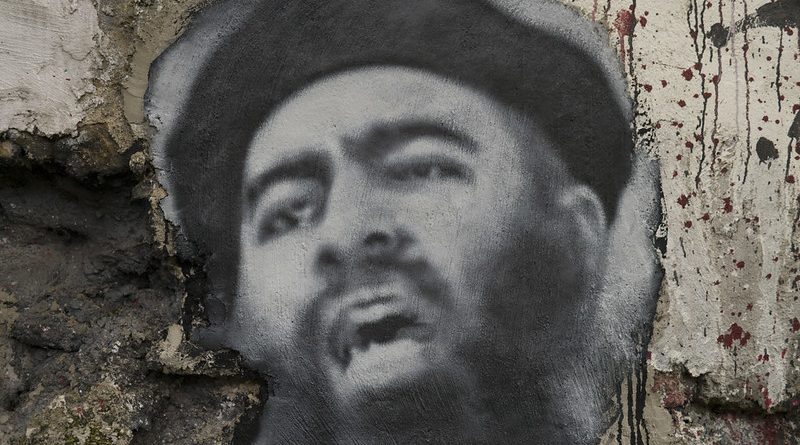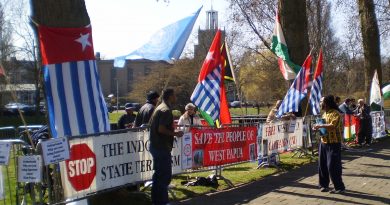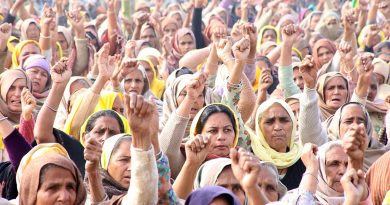Al-Baghdadi Death Further Illustrates IS Priorities in War Against West
Stephanie Miller
International News Editor
When Abu Bakr al-Baghdadi detonated a suicide vest to avoid capture by U.S. forces, he did not do so alone – he ended the lives of two of his own children in the process. While collateral damage is not a new word to the Islamic State, the al-Baghdadi children are not just another two names to be added to a growing list. Their deaths illustrate the lengths that this self-described “caliphate” will go to give preeminence to ideology in an ever-evolving war kept alive by an estimated 14,000 operatives still active across Iraq and Syria.
The Economist points out that al-Baghdadi’s death marks the end of an era for the Islamic State, and it is not wrong: the Islamic State has moved away from a centralized command structure towards a diffused model, encouraging affiliates to coordinate and carry out their own attacks, according to the New York Times. Linked through extremist dogma, the IS network now supports new franchises in Afghanistan, Libya, the Philippines, Egypt, Nigeria, Mali, and Burkina Faso.
While the organization is no longer an entity occupying the physical territory it once did, it lives on in the hearts and minds of militants and civilians alike. Perhaps this reality is most prevalent in Syria’s notorious al-Hol camp, where IS fighters and their families are quarantined away from the general populace. The New Humanitarian reports that while supporters of the jihadist organization routinely spread false stories about conditions inside al-Hol, including “tales of organ harvesting, murder, mutilation, even of the kidnapping of children”, the Kurdish camp administrators seem even more afraid of prisoners than the prisoners are afraid of their guards.
“Stabbing guards, stoning aid workers, and flying the Islamic State group’s black flag in plain sight: the wives and children of the ‘caliphate’ are sticking by the jihadists” reports France 24.
However, even as these steadfast IS supporters insist that the caliphate will rise again and refuse to back off their inciteful rhetoric, it appears that all is not well in al-Hol. Since Turkey began its offensive into Syrian territories, Kurdish security forces have been pulled away from the camp and back into active combat.
“Even before the Turkish invasion of northeast Syria, this camp was in crisis,” the NYT show The Dispatch reports, “a breeding ground for the next generation of ISIS. Kurdish-led security was at least keeping ISIS in check. Now, as outside forces undermine Kurdish authority, the question of what will happen to these women and children becomes more pressing than ever.”
Given the fact that al-Hol is now even more insecure than ever, one would imagine that there might be a movement within IS to repatriate its members. Foreign Policy affirms this assumption, reporting consecutive breakouts from a detention center near Qamishli, the departure of almost 800 women and minors from an internally displaced persons camp outside Ain Issa, and the escape of over 100 Islamic State prisoners during the Turkish incursion. Al-Baghdadi’s call to free the men, women, and children of IS in September did not go unheeded then, and it will likely continue to inflict damage to an already thinly stretched PKK long after his death.
Interestingly enough, none of these cases appears to have been orchestrated by the Islamic State itself but rather been the products of prisoner ingenuity and opportunity. It begs the question as to whether the Islamic State is truly concerned for its imprisoned numbers or if it sees these people as lost causes, their lives merely forfeiture in a fight to save the remnants of a movement that has been forced underground.
There is evidence to suggest the latter: the terror group met al-Baghdadi’s death not with any of its historic grandstanding but rather with empty words, reiterating typical responses like warnings to “beware vengeance” for al-Baghdadi’s death, swipes at Trump’s erratic leadership, and emphasis the group’s global reach. In addition, the announcement of its new leader Abu Ibrahim al-Hashimi al-Qurayshi was relatively quiet in comparison to like-announcements in previous years, according to Time. He provided little information about the new leadership beyond connecting him with the Prophet Mohammad’s lineage.
We cannot know whether or not Abu Bakr al-Baghdadi believed that he was saving his children from a worse fate when he detonated that suicide vest. Either way, their deaths were casualties of a war not of their own design, paid tribute to an organization that prioritizes ideology over human decency. The Islamic State has shown how it prioritizes the lives of its members, having already determined the shadowy future of the cause by robbing the al-Baghdadi children and their young peers in al-Hol of the ability to choose their fate. The West’s next move should be to prioritize winning the hearts and minds of children like these if it is truly interested in ending the War on Terror once and for all.




